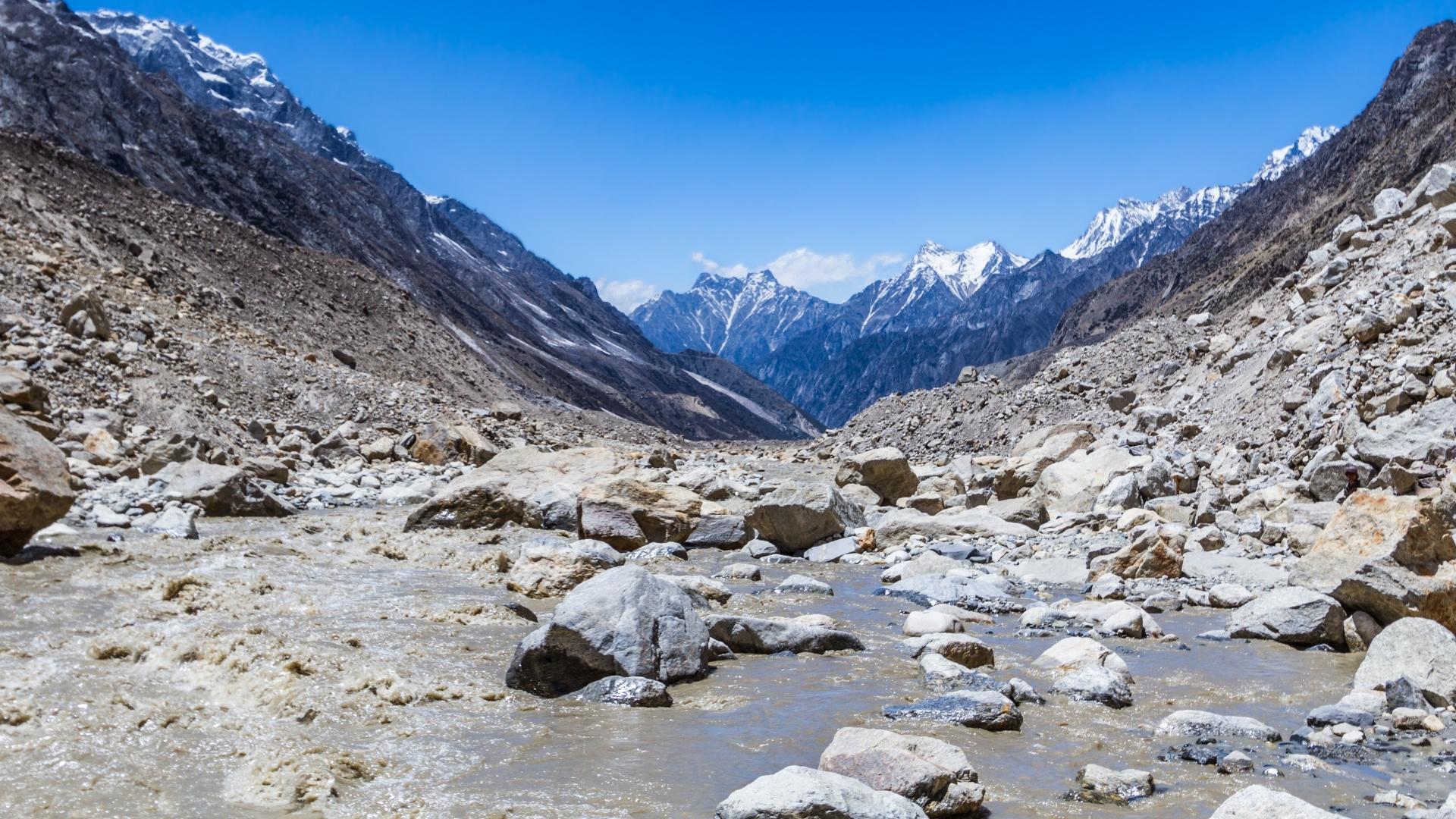The Ganges River is sacred to Hindus and well-known among non-Hindus worldwide. It begins in the western Himalayas and flows 1,569 miles through India and into Bangladesh until it empties into the Bay of Bengal. Along the way, the Ganges River is a lifeline for millions living along its banks. Historically, the Ganges has been the site of many imperial capitals. But more importantly, the Ganges has always been viewed as a goddess.
In Hinduism, the Ganges is considered an earthly representation of the goddess Ganga. Ganga is perhaps the most important female deity in all of Hinduism. It is traditionally the consort of the three gods that make up the “Hindu trinity”: Brahma, Vishnu, and Shiva. Ganga travels with Brahma in the guise of water in his water pot and emanates from Vishnu’s foot as one of his co-wives.
Goddess Ganga’s relationship with Lord Shiva is the most detailed of the three. According to Hindu mythology, Goddess Ganga is continuously emanating from the Hairs of Lord Shiva and, in the process, is continually falling to earth as the Ganges River. Because the Ganges is an avatar, a form of a goddess constantly linking heaven and earth, it has an incredibly important and sacred status within Hinduism.
The waters along the entire course of the Ganges considered being sacred and purifying. Hindus perform various important rituals which require the waters of the Ganges River. They bathe in the waters and offer flowers to the river. It is very important for most Hindus to bring the ashes of deceased loved ones to the Ganges and to have their ashes brought there after they have died.
Hindu culture, stemming from the Vedas, is incredibly concerned with purity and auspiciousness. The Ganges waters are considered the most purifying waters of all. Not only do they wash away physical impurities, but emotional and spiritual ones as well. As a goddess, the Ganges has the power to absorb and remove everyone’s sins and impurities, particularly in its fast-flowing waters. Some bathers will hold on to a chain and risk getting carried away by the Ganges’ faster-flowing waters to get thoroughly cleansed.
Because of the fact that the Ganges is so important to Hindus, but many Hindus, unfortunately, live too far away to bathe daily in its waters, Hindu communities often create a “local Ganges”. This can be a river, lake, or any body of water that is considered to be like the Ganges. The bodies of water spiritually turned into the Ganges during important ceremonies by the simple fact that all sacred water bears the spirit of the goddess, or they are sometimes infused with water from the actual Ganges.
Sometimes, Hindus who have immigrated to other countries will bring a small bottle of Ganges water to put into a local body of water. This way, they can keep Ganga, the sacred goddess of the Ganges River, nearby.









